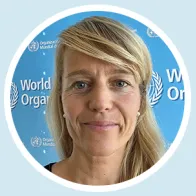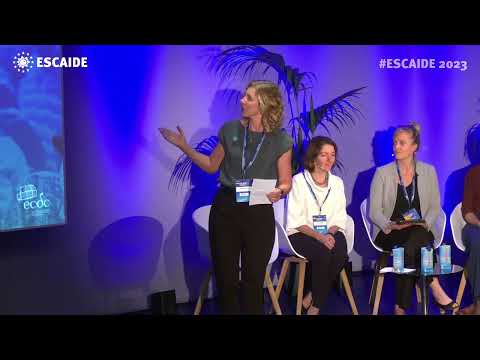Preparedness session: Are we “PRET” for the next pandemic?
The session will start with a reflection exercise: what did we learn from the COVID-19 pandemic and how will it impact future pandemic preparedness?
WHO will then present its new initiative ‘PRET: Preparedness and Resilience for Emerging Threats’ to engage and inform participants about the innovative mode of transmission approach for pandemic planning. Examples for pathogen-specific elements such as influenza will be highlighted and discussed. Ways to engage in PRET will be shared.
The session will end with participant inputs and hearing from those engaged in pandemic planning to share their experiences.
Date and time
Friday, 24 November, 15.30 - 16.15 CET
Moderator

Hannah Lewis
Hannah Lewis is an epidemiologist with over 15 years experience in international health emergency preparedness and response, including at the three levels of WHO. She is currently a consultant epidemiologist working on respiratory pathogen pandemic preparedness at WHO HQ. She supported the COVID-19 response through the implementation of the “Unity (sero-epidemiological) Studies” (2020-2022), particularly in the WHO African Region. Other international positions included implementing surveillance and response projects in Southeast Europe and Central Asia as an epidemiologist at the Robert Koch Institute, Germany (2013-2019) and epidemiologist at the WHO Lao PDR Country Office (2008-2012). Prior to this, Hannah worked at the national level with a focus on foodborne and zoonotic diseases: Statens Serum Institut, Denmark (2006- 2008) during EPIET, UK Health Protection Agency (now UKHSA) (2004-2006), and at the Department of Health, England (1999-2003). Hannah holds a Master of Public Health from Kings College, University of London (2005) and is an EPIET Alumna (2008).
Speakers

Gina Samaan
Dr Samaan is a field epidemiologist with a career focus on pandemic risk management. At the World Health Organization (WHO), she leads “PRET” which is a global initiative to strengthen preparedness and resilience for future pandemic through a disease mode of transmission lens. She also leads the global coordination on the Global Genomic Surveillance Strategy for Pathogens with Pandemic and Epidemic Potential. During the COVID-19 pandemic, Samaan established a response unit focusing on country support, technical monitoring and liaison with the United Nations (UN) system. In recent years, Samaan managed the WHO Pandemic Influenza Preparedness (PIP) Framework Partnership Contribution (PC) for strengthening country capacities. In 2014-2021, the collective investments made by countries, partners and WHO including PIP PC have resulted in 68% of the world’s 194 countries strengthening their participation in global influenza surveillance systems. Samaan previously worked and consulted for agencies including US-CDC, USAID, DFAT Australia, IOM, RTI International and the Australian Department of Health to design or implement disease control initiatives.

Isabel Bergeri
Dr Bergeri is a senior infectious-diseases epidemiologist in the World Health Organisation Headquarters in the Health Emergencies Programme, Department of Epidemic and Pandemic Prevention and Preparedness, working on international health.
Share this page

